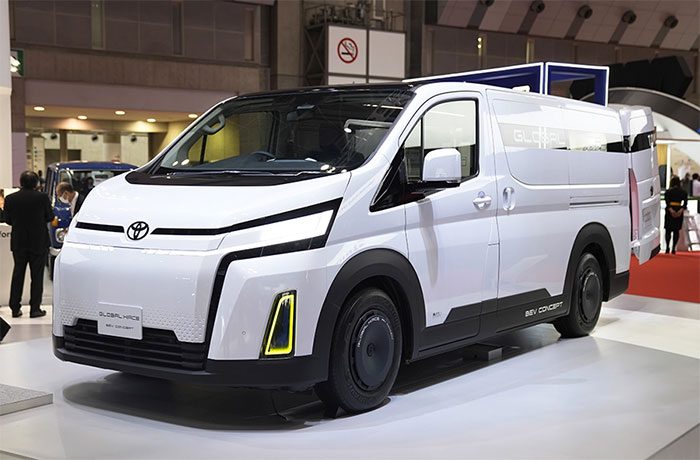The Japanese metal manufacturer Proterial has successfully developed a new material for electric vehicle (EV) battery casings that can block electromagnetic waves. This new battery casing material will help reduce the vehicle’s weight by 10% when used instead of the current aluminum casing.

A Toyota electric vehicle model introduced in Tokyo, Japan. (Photo: Kyodo/TTXVN).
According to reporters in Tokyo, electric vehicles have more electronic devices than gasoline-powered cars. The electromagnetic waves emitted from these electronic devices can interfere with the operation of the vehicle’s systems and potentially lead to accidents. Therefore, manufacturers typically encase the battery and other components of the vehicle in aluminum shells to block these electromagnetic waves.
Proterial has developed a thin coating to replace aluminum, primarily made from iron sheets sandwiched between film layers. The battery and other components will be covered with this coating and a plastic layer to dampen vibrations. This new casing will make EV batteries about 30% lighter compared to using aluminum casings. When combined with the use of this material on other components, such as integrated chargers, the overall weight of the EV could decrease by more than 10%, thereby potentially increasing the driving range by approximately 10%.
The company has already sold similar electromagnetic wave-blocking products for mobile phones, cameras, and other devices. By modifying the adhesive and film materials, Proterial has increased the heat resistance from 80 degrees Celsius to 130 degrees Celsius, making this material suitable for a wider range of applications, including EV batteries. The company plans to begin mass production this year.
Materials for EVs have seen a wave of new products and technologies. JFE Steel has developed iron powder that helps reduce the weight of electric motors, while Mitsubishi Materials has established a new technology to support the mass production of electrolytes for next-generation solid-state batteries.


















































